“I have to go into court and play a part in a stupid charade to convince some judge that I’m not really me in order to receive some justice!”
|
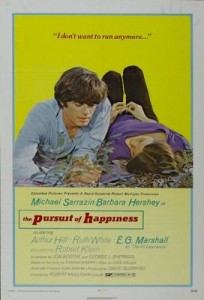
Synopsis:
When a college student (Michael Sarrazin) accidentally runs over and kills an old lady (Maya Kenin), he finds his liberal lifestyle rather than his crime put on trial; eventually he and his girlfriend (Barbara Hershey) decide to take matters into their own hands.
|
|
Genres, Themes, Actors, and Directors:
- Barbara Hershey Films
- Counterculture
- E.G. Marshall Films
- Fugitives
- Living Nightmare
- Robert Mulligan Films
Review:
This oddly provocative counterculture flick posits a Kafka-esque “living nightmare” any one of us could find ourselves in — involuntary vehicular manslaughter — and takes this scenario to its farthest limits, ultimately arguing that expatriation may be the only option when the legal strictures of one’s country have become too outlandish to obey. Made during the height of the Vietnam protest era, it’s an interesting non-political variation on the theme of private resistance; one can’t help siding with Sarrazin’s sympathetic protagonist, who tries to play by the rules but ultimately finds himself damned no matter what he does. It’s all a bit stagy and forced at times, but there are several fine supporting performances to watch for (most notably by Arthur Hill, E.G. Marshall, and William Devane), and the central premise is compelling enough to hold interest throughout.
Redeeming Qualities and Moments:
- Arthur Hill as William’s father
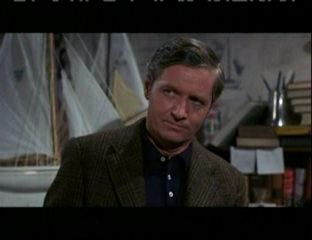
- E.G. Marshall as William’s no-nonsense lawyer-uncle
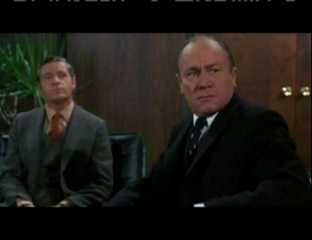
- William Devane’s tiny but memorable performance
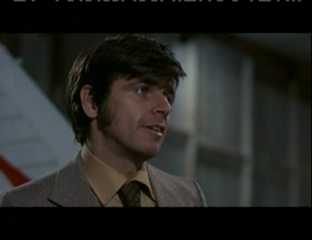
- A provocative thematic basis
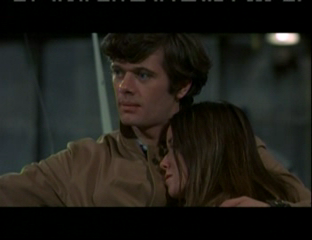
Must See?
No, but it’s worth a look if you stumble upon a copy. Listed as a Sleeper in the back of Peary’s book.
Links:
|
One thought on “Pursuit of Happiness, The (1971)”
First viewing. Not a must – and a mostly forgotten film today; it’s no big loss if it stays off your radar.
While I find the assessment an interesting take on the film, I tend to see it as an ultimately pointless, ’70s anti-establishment character study that becomes increasingly frustrating as it draws to its unsatisfying conclusion.
It has an oddly hit-or-miss screenplay which ping-pongs between moments of perceptive power and over-played filler.
It does have the added plus of a great group of dependable, New York character actors (including Arthur Hill, E.G. Marshall, Sada Thompson, Barnard Hughes, Ralph Waite, Rue McClanahan) who, my guess is, came on board to work with the director of ‘To Kill a Mockingbird’. Topping them all here, though, is Ruth White – an intriguing personality, giving her final screen performance as Sarrazin’s bigoted grandmother. (She died before the film’s release. White and Hughes were both seen in very different form two years earlier in ‘Midnight Cowboy’.)
Why anybody ever allowed Randy Newman to write songs for film is beyond me.
Fave scene: Sarrazin talks back in court when he finds his trial ludicrous.
Second fave: It’s refreshing when, in prison, Sarrazin befriends a gay inmate and, without a thought about it, helps the guy write a love letter to another man.